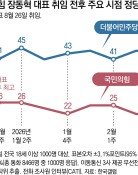[Editorial] No laundering for political slush fund!
[Editorial] No laundering for political slush fund!
Posted August. 20, 2000 21:21,
The Ministry of Finance and Economy is apparently trying to exclude illicit political slush funds from the money that is bound by the regulations of the proposed Law for the Prevention of Money Laundering. We suspect that the true intention behind the Ministry`s legislative move is nothing but a showy attempt to meet the pressures from relevant international organizations to take actions to prevent money laundering.
The United Nations and the Organization for Economic Cooperation and Development have urged their member states to take measures to prevent money laundering. The move is necessitated by their common understanding that such measures are necessary to prevent the laundering of money. Apart from such international pressure, the nation urgently needs the prevention legislation in view of its 2nd liberalization of foreign currency transactions, slated for January next year. Should we fail to equip the nation with measures to ban money laundering prior to the scheduled liberalization of the exchange market, it is quite probable that our nation will become a market for international criminal organizations to launder their funds.
The Ministry does not have enough time to complete the necessary measures before the slated currency liberalization. Under the circumstances, the Ministry`s strategy for the quick passage of the prevention law obviously excludes political slush funds as not to be bound by the proposed bill for the prevention legislation. Because lawmakers naturally dislike legislation that regulates their political funds.
The Ministry`s cunning move indicates that there are many politicians who are not free from such illicit transactions of political funds. The situation is well illustrated by the Hanbo group`s bankruptcies. The Hanbo scandal gave rise to the general public`s outcries against corrupt politicians, bureaucrats and bankers, who turned out to be jointly responsible for the scandal. As a move to defuse the worsening public opinion against them, a bill for the prevention of money laundering was submitted to the National Assembly in 1997. But, it did not get to the deliberation stage due to the lawmakers` obvious dislike of the bill, which was automatically repealed after the legislative deadline elapsed.
The Ministry argues that legislation to prevent corruption such as political slush funds requires additional legislation separate from the prevention of money laundering. This is, the Ministry`s excuse states, is dictated by the nature of our legal system and its consistency. But, the political slush funds must take a central importance in our legislation to ban illicit money laundering in view of Korea`s criminal realities.
In a sharp contrast to foreign cases in which narcotic dealers are the main perpetrators of money laundering, Korean money launderers are mainly white collar criminals involved in bribes and kickbacks. Reports by a criminology policy institute disclosed that members of parliament, senior civil servants and taxation officers were involved in substantial money laundering crimes investigated by prosecutors over the last 9 years.
It is highly doubtful whether the international community will accept such phony and deceptive legislative bills as the Ministry`s draft bill. Bribes or kickbacks that involve politicians and civil servants should not be treated as a criminal issue that concerns only any one country. All advanced nations are launching a worldwide effort to root out criminal corruption from their international transactions. To our shame, Transparency International rated Korea last year as the 50th nation in its transparency ranking among the 99 countries it surveyed. Jamaica and Lithuania ranked the same as Korea. In terms of bribes, Korea followed China in occupying 2nd place in frequency of bribes among the 19 countries it studied.
The government must submit to the National Assembly its draft bill to ban money laundering. The legislation`s central concern must be the prevention of laundering any illicit political slush funds. There is no use for such legislation if it excludes illicit political funds.




![“20대엔 28개, 80대엔 15개… 노년기 치아상실 피하려면”[베스트 닥터의 베스트 건강법]](https://dimg.donga.com/c/138/175/90/1/wps/NEWS/IMAGE/2026/02/27/133437590.4.jpg)

![‘노인 냄새’ 씻으면 없어질까?…“목욕보다 식단이 더 중요”[노화설계]](https://dimg.donga.com/c/138/175/90/1/wps/NEWS/IMAGE/2026/02/27/133434557.3.jpg)
